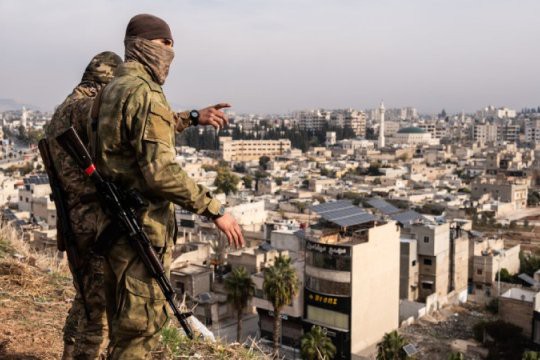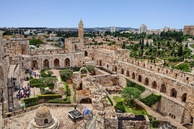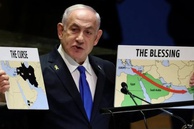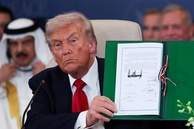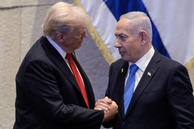Against the backdrop of events rapidly unfolding in Syria and the growing impact of regional chaos, let us look back on what was done and said a long time ago. Looking for historical clues for understanding what is happening and, more importantly, for projecting expectations into the future, Internet users have dusted off old books and are turning their attention to quotes from the Bible: (“Behold, Damascus will no longer be a city, but will become a heap of ruins... The fortress will cease from Ephraim and the kingdom of Damascus with the rest of Syria will cease to exist ...”), the predictions of Vanga (“Syria has not yet fallen ...”) and other prophecies that strongly resonate with our times. Attractive as the frightening artistry of such parallels may be, analysts still have to deal with hard facts. Even though during the hot phase of any geopolitical process monitoring the “general temperature” of tensions would be more judicious than jumping to conclusions, Turkey’s involvement in and the benefits it has gained from the ongoing events in Syria are pretty much obvious.
Many foreign and domestic observers agree that although Ankara did not directly interfere in the armed opposition’s offensive, it apparently greenlighted the whole operation. The Turkish-Syrian border has long been the main supply route for the moderate opposition, and dump price oil smuggling via Turkish territory is an important source of funding for ISIS. Ankara has tacitly, albeit clearly, ensured the existence and development of “brotherly quasi-regions” that have in recent years popped up on Turkey’s southern flank. Security in these territories is maintained, in close coordination with Turkish intelligence, by the Syrian National Army (SNA; de facto the “brainchild” of Turkey) [1], which also took part in the “crusade” on Aleppo, Homs, Hama and Damascus. Since Idlib, where the offensive started from, is essentially a sealed off territory, it seems quite logical that Turkey, due to its geographical location, provided the appropriate logistical support for that offensive. Besides, some observers claim [2] that a significant portion of the Turkish aid sent to refugees in Idlib ended up in the hands of Hayat Tahrir al-Sham (HTS; banned in Russia). At the same time, Ankara continued providing weapons and money for the units of the National Liberation Front (NLF), which were only nominally part of the SNA, but in reality were part of the forces of the Fatah al-Mubeen alliance, completely controlled by HTS. Therefore, it would be safe to assume that it was these NLF groups that assisted HTS in obtaining additional sources of funding and modern weaponry. It is unlikely that Ankara could have been unaware of this.
A report released by the Turkish Center for International Strategic Studies 12 years ago, says, “Turkey is paying increased attention to relations with opposition groups, counting on their coming to power in the period following the overthrow of Assad…” Also worth mentioning in this regard is what Turkish Foreign Minister Hakan Fidan said in 2014, while in his previous position as the head of the country’s National Intelligence Organization: “If necessary, we will send our people to Syria.” [3] And, finally, a symbolic statement made just a month ago by President Recep Tayyip Erdogan: “In the coming period, we will have good news for our nation, which will ensure both the security of all our southern borders and the safety of the lives and property of our people.” As for the goals pursued by Ankara in Syria, the overwhelming majority of analysts single out three main priorities. First, to suppress forces affiliated with the Kurdistan Workers' Party (PKK), recognized by official Ankara as terrorist, and check their advances within Syria. These are the Democratic Union Party (PYD) and the People's Protection Units (YPG). It is no coincidence that right after the fall of Damascus, the SNA launched an offensive against the Kurds near the city of Manbij as part of Operation Dawn of Freedom.
Secondly, a regime change in Syria would help ease the problem of the Syrian refugees (around 3.5 million), now living in Turkey, which is a source of growing irritation within Turkish society. Small wonder that on this past November 29, amid the opposition forces’ ongoing offensive, President Erdogan said that the process of “the voluntary return of Syrian refugees to their homeland must accelerate.” As the opposition groups continue to advance and achieve military and political success, the Turkish interior and foreign ministers fully echoed Erdogan’s position. Vice President Cevdet Yilmaz even announced that “the honorable, safe and voluntary return of our Syrian brothers” would be ensured “by creating a safe and economically favorable environment in Syria” (a direct reference to Turkey’s role in that country’s post-war reconstruction).
Finally, economic motives are no less significant. Some experts rightly recall a onetime project (never realized though) of a gas pipeline that was to start from the world's largest oil and gas field, North/South Pars, in the territorial waters of Qatar and Iran and run across Saudi Arabia, Jordan and Syria to Turkey for subsequent deliveries to Europe. At the same time, this Western-backed project posed a potential threat to Russia’s monopoly on gas supplies to the EU.
Notably, as early as in 2012, Bashar Assad decided to sign a memorandum with Tehran with an eye to organizing the transit of Iranian gas to Europe through Iraq and Lebanon, bypassing Turkey. It also provided for the construction of a gas liquefaction plant on the Mediterranean coast. As a result, a number of observers, domestic and foreign, (including President John Kennedy’s nephew, Robert Kennedy Jr.), noted that Washington's "undeclared war" against Bashar Assad began after he turned down the idea of building a gas pipeline across Turkey. In this regard, ahead on an agreement on continued deliveries of Russian gas to Europe via Ukrainian territory, and against the backdrop of the increasingly aggressive policy of the collective West to diminish Russia's presence on the world gas market, it is safe to assume that with Bashar Assad now overthrown, the Qatari-Iranian-Turkish gas pipeline project can be implemented. The question, which keeps coming to mind, however, is why did it all happen now? Some analysts claim that the military offensive was planned for much earlier, for mid-October, but Turkey stopped it and gave the go-ahead only after its efforts to normalize relations with the Assad regime were rejected. Well, this version sounds a bit fishy though, since Turkey’s demands for normalizing relations deliberately contrasted with the Syrian leader’s counter-proposals. So, beautiful as it might seem, “Ankara’s outstretched hand” looked a tad theatrical.
The version about the "American trace" and expectations from Donald Trump’s election seem more credible. According to some observers, after winning the presidential elections in November, the new occupant of the White House apparently proposed a "political exchange" of the Syrian dossier for the Ukrainian one, whereby Washington's involvement in Kyiv's affairs is reduced, while the US presence in the Middle East gets a new boost. At the same time, the path to strengthening Washington’s position is "cleared" by Turkey with due respect to the interests of all parties. Indeed, soon after the capture of Damascus, Trump made a post on the Truth Social network stating that the Ukrainian authorities would like to sign peace with Russia, and called for a ceasefire. In an interview with the NBC News channel, Trump emphasized that after he took office, Kyiv should not count on the same volumes of military assistance it received from the Biden administration. Notably, in Turkey itself, assessments of what is happening are quite different. While pro-government forces predictably express wholehearted support for their president’s actions, sometimes even in overly emotional terms (Erdogan’s daughter Esra Erdogan, the wife of the country’s former Finance Minister Berat Albayrak: “Help is blessed and victory is near!”, “Assad fell, and Erdogan won”; Devlet Bahceli, the leader of the Nationalist Movement Party: “Aleppo is a Turkish and Muslim city. It is not just us who say this, the truth says this…”), the parliamentary opposition (above all, the Republican People’s Party, the Good Party) calls for keeping in mind the precepts of Ataturk, to focus on solving domestic problems and abandon the policy of internationalism (“Turkey must stay away from adventures with an uncertain outcome.” “The Turkish people will no longer die for anyone except their homeland and nation.”)
The Syrian opposition’s march continues. Turkish and other flags are flying in various corners of the former Syrian lands, which already feel the pinch of civil strife that is taking on an international dimension. Israel has invaded Syria for the first time in half a century, US aircraft have launched over 70 strikes on its territory, and opposition groups are eyeing each other very closely, trying to understand which of them will rule supreme in Damascus.
The views of the author are his own and may not reflect the position of the Editorial board.
[1] https://newlinesinstitute.org/wp-content/uploads/20221206-Intel-Briefing-Turkish-Proxies-in-Syria-NLISAP-1.pdf
[2] https://t.me/semenovkirill
[3] I. Ivanova Evolution of the Middle Eastern policy of the Turkish Republic (1923-2016). Мoscow, 2017. p. 424 с.
read more in our Telegram-channel https://t.me/The_International_Affairs

 11:52 10.12.2024 •
11:52 10.12.2024 •
